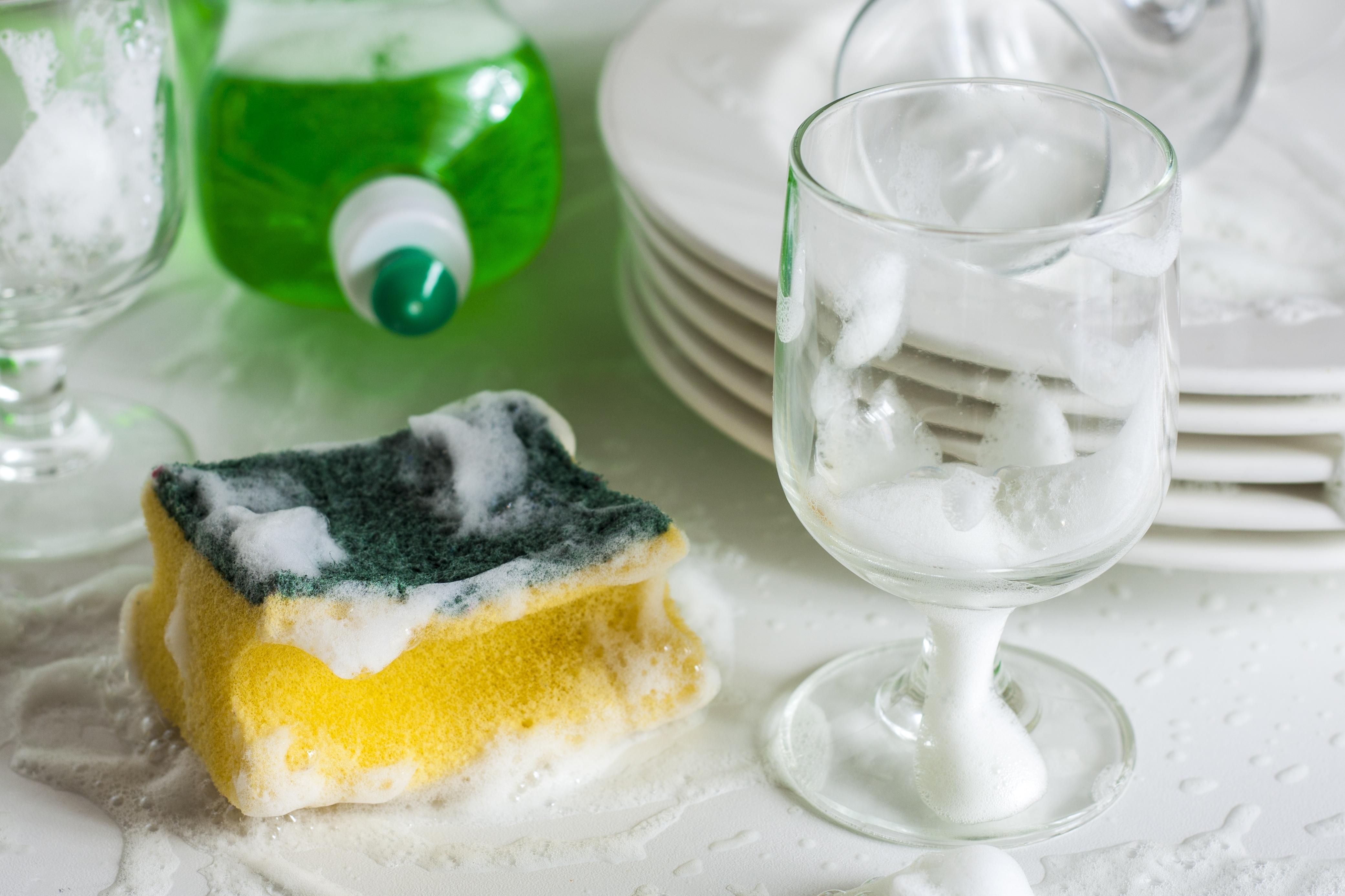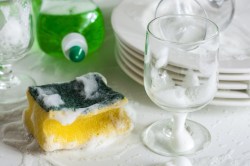Send your question to Umbra!
Q. Dear Umbra,
My darling husband does our family’s dishes so I try to just stay out of his way. But he is convinced that the environmentally safe dishwasher detergents are not effective. Then again, opening the door after a completed cycle with his super-duper soap is so noxious that I am convinced these detergents leave behind residue subsequently to be consumed by me and his lovely daughter. What’s the rub?
Michele C.
Keene, N.H.
A. Dearest Michele,
It is awfully hard to argue with people who take on odious chores, isn’t it? Ordinarily I would agree with your urge to give your husband a wide berth, but dish detergent happens to be a subject about which I am passionate. Hey, we all have our passions.
First, let us celebrate the fact that your husband is using the dishwasher. As we have discussed before, a fully loaded dishwasher is more efficient than hand-washing dishes. Our friends at the Energy Star program swear it saves us time and money, too, to the tune of 10 days a year and $431 over the life of the machine. (Those of us not blessed with dishwashers can save water by filling a basin or two in the sink instead of leaving the water running while we wash up. But you knew that.)
So are your husband’s habits putting your family at risk? For many years, mainstream detergents contained phosphates, which were magic on dishes but fatal for fishes. In 2010, a controversial ban on phosphates took effect, relieving us of that worry, but conventional detergents still contain an alphabet soup of unsettling ingredients, which can include chlorine, sulfuric acid, and the nefarious “fragrance.” Check out the Environmental Working Group’s Guide to Healthy Cleaning for an eye-opening look at the truly toxic nature of many of our household products. Of 100 dishwasher detergents analyzed by the group, half got a rating of D or F. I’ll bet your noxious brand is in there! Go look it up. Then take a look at the items that get an A rating. They are better for your family’s health, and better for our waterways and the critters therein.
If eco-detergents haven’t met your mate’s expectations thus far, it may not be their fault. As former Grist food writer extraordinaire Tom Philpott explained in a review of eco-detergents awhile back, the performance of detergent actually has a lot to do with whether your water is hard or soft. I don’t know how the water is there in Keene, but hubs might have to do a quick pre-rinse so the eco-detergents can perform at their peak. Yes, this uses a bit more water, but choosing a greener detergent can keep potential carcinogens off your dessert plates. Kind of a good trade-off, if you ask me. The fine folks at Consumer Reports have a few more thoughts about how to deal with hard water and how to get the best out of your dishwasher.
Of course, you could always try making your own dish detergent with a few basic ingredients — this recipe offers tips on what to use and where to find the materials. Surely if you whip up a batch and present it to your darling dishwasher with a smile, he’ll be willing to give it a try. It’s the least a renaissance man can do.
Domestically,
Umbra




